commentary Commentary
Commentary: Johor city dwellers hit hard by MCO but rural communities fare worse
Cut off from the outside world, with essential supplies curbed, fishing and agricultural communities in Johor could use more help, says Serina Rahman.
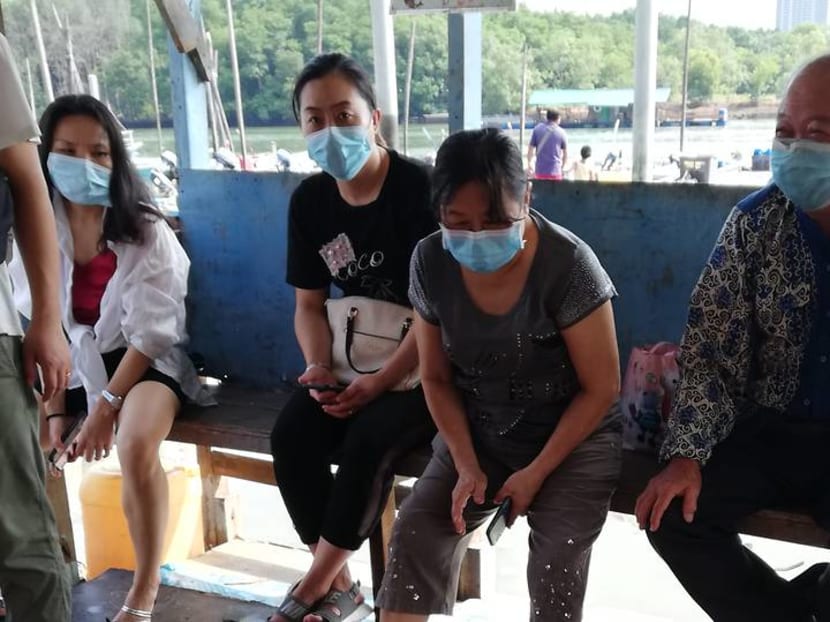
Customers waiting for their seafood at a jetty in Sg Che Manan before the MCO was reimposed. (Photo: Serina Rahman)
JOHOR BAHRU: The jetty in Sungai Che’ Manan on the western corner of the Tebrau Strait just across from Pasir Laba in Singapore near the Tuas Second Link is a place I know well.
Fishermen and customers who come in to buy seafood fresh off the boat are well acquainted in this closely knit community.
This was once a thriving enterprise, with regulars traveling from all over Johor Bahru some 45km away to buy chemical-free fish and crustaceans.
Fishing in these areas is an art, and the fishermen skilled craftsmen in their net-making and acute understanding of the coastal seas, currents wind and weather.
But the arrival of COVID-19 pierced this bubble of business.
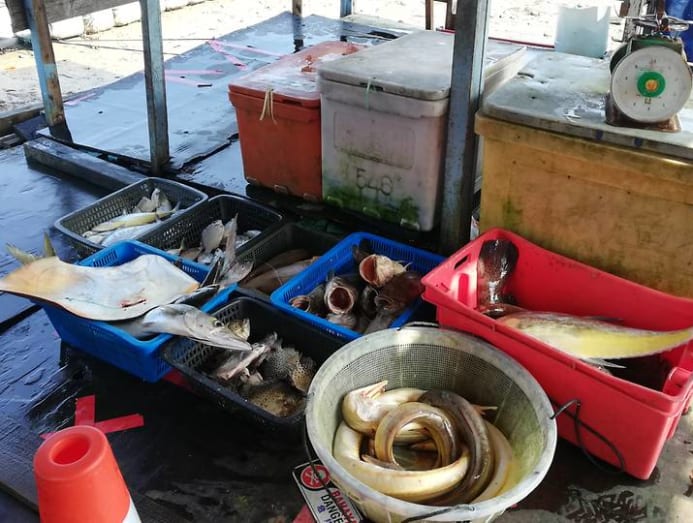
During the first lockdown in March 2020, fishermen suffered from a total loss of customers as travel restrictions prevented anyone from reaching this stretch of fishing villages.
Enforcement of the Movement Control Orders (MCO) has been stringent.
The nearest town of Gelang Patah is 27km away by the main coastal road and roadblocks purportedly looking for illegal immigrants have been set up at all entry roads to the area.
Markets in other parts of Malaysia were throwing away their catch at this time; fishermen were not getting paid.
To prevent this, the market’s owners raised more than RM60,000 (US$14,790) during the first MCO period (March to May 2020) to pay for seafood and have it sent to the urban poor and homeless in Johor Bahru and Gunung Pulai.
READ: Commentary: Frustrated with tightened COVID-19 restrictions, Johor residents hope this MCO is the last
WEARY, FRUSTRATED AND DISTRUSTFUL
Almost one year on, with various permutations of MCO in place, the people of this Tanjung Kupang sub-district (mukim) are weary.
Initially believing that they were sufficiently isolated, COVID-19 has reached them as it has other rural and isolated areas across Malaysia.
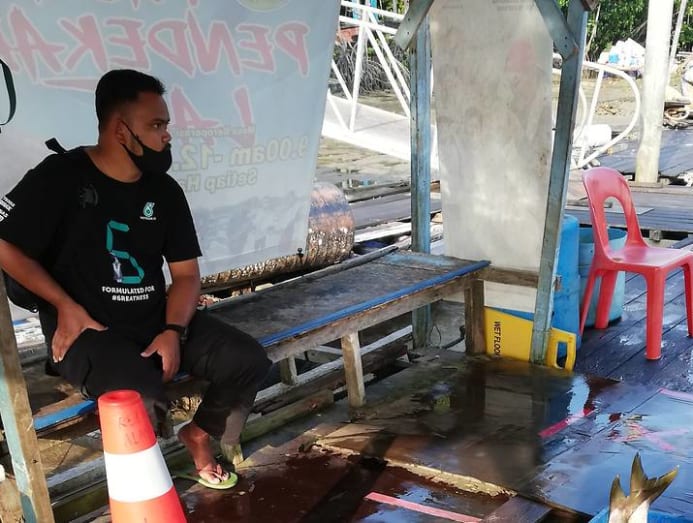
Today, the place has been declared a red zone with 48 cases, though many are wondering where and who have been infected. In small communities like these, news of severe illness usually spread like wildfire yet residents have heard little details of such cases.
Weariness has recently morphed into anger when the MCO’s extension to Feb 18 was announced.
With videos circulating about the ineffectiveness of these extended MCOs, people are questioning the government’s competency and honesty in reporting huge daily infection numbers.
READ: Commentary: KL-Singapore HSR termination risks Malaysia falling behind on transport connectivity
Some are now going as far as denying the existence of the virus.
ISOLATED FROM HELP
The plight of those living beyond city-limits is severe.
In many rural villages like this, one must travel more than 10km to find a pharmacy, petrol station or other items beyond simple daily necessities.
Villagers bemoaned the roadblock imposed for almost a year. They are concerned with getting fined even though their journeys to buy essentials are legitimate. They feel unfairly targeted and stressed because they cannot move around freely.
There have been several reported instances where enforcement may have overreached. One student was fined RM1,000 for not wearing a mask properly.
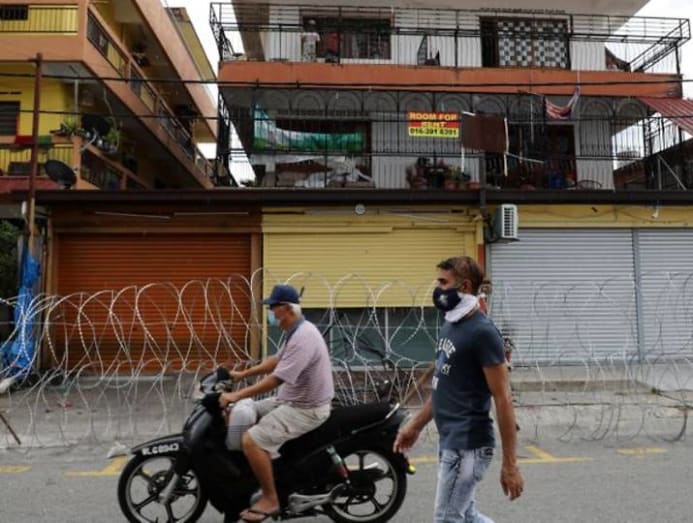
Then there are the frequent amendments and reversals of the SOPs, leaving many uncertain as to what is permissible.
There have also been viral but unverified videos promising court summons and jail time for breaches.
One elderly lady, Kamariah Samdan, told me that her friends now fib if they need ingredients and items unavailable in the villages; they say they need to see a doctor. She said several have been reproached by the police for heading out for daily necessities.
The police tell them that they should buy and eat whatever the villages have instead of going into town. In fear, the residents turn back, largely grateful that they were not fined.
READ: Fewer Malaysian confinement nannies in Singapore due to COVID-19, parents face higher costs in hiring
This situation is similar elsewhere. In Tenom, Sabah passengers on a bus were fined RM1,000 each for getting on a bus beyond the 50 per cent capacity limit.
Passengers, from a village further inland, were trying to get to the nearest town to buy food and medicine, but the transportation used was unregistered and therefore illegal.
In a village in Pasir Gudang, six youth were arrested and charged for playing sepak takraw earlier in January. A roadblock was immediately set up within the village to check on resident movements.
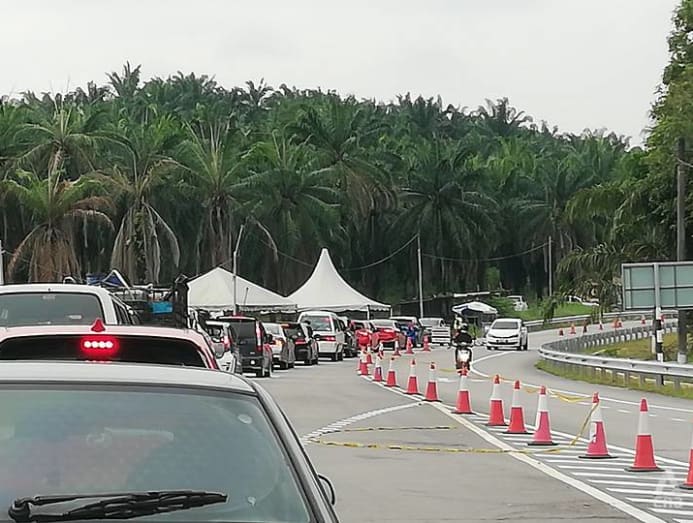
At another jetty on the outskirts of Gelang Patah, a fisherman, Abeh, was charged RM1,000 for not wearing a mask. He had just come back from sea, parked his boat and was walking up to his motorbike alone.
CONCERNS WITH USING THE CONTACT TRACING APP
In Gelang Patah, plainclothes policemen have fined people for not properly using the MySejahtera app used to trace close contacts.
Residents used to be able to write their names and phone numbers in a book if they did not have the app. But this option is no longer available. The use of the application is now mandatory.
But many villagers do not carry smartphones. Most who have phones do not have Internet data. Others are IT illiterate. Exceptions have been made for rural and interior areas without Internet coverage but villagers run into problems when they travel into town.
While the policemen are simply carrying out their duties, some health experts are questioning the effectiveness of some SOPs – like limiting dining out to groups of two when proper ventilation and spacing is more important.
They have asked for an evidence-based approach that balances helping the economy recover while keeping infection numbers low.
Listen to Malaysians coping with a new wave of COVID-19 share their very different experiences of living through the pandemic in Johor, Kuala Lumpur and Sabah:
SELECTIVITY OF SUMMONS
With the new extension of the current MCO, the government has promised more severe penalties for breaching guidelines.
The biggest frustrations among those who I spoke to lie in the perceived selectivity in the administration of summons.
Officers in uniform have been seen dining in groups at food stalls when others were only allowed to buy takeout.
While ordinary citizens are not allowed to travel beyond 10km, politicians, VIPs and the wealthy have been seen traveling across districts and states to meet their electorate, hold meetings and distribute aid.
READ: Commentary: A convenient state of emergency amid challenging times in Malaysia
Photos taken at these events often show maskless VIPs, or with masks on chins, with no social distancing.
In Kota Tinggi, a political photo opportunity inadvertently resulted in a COVID-19 cluster when crowds formed to receive flood aid.
A recent announcement by the Health Minister Adham Baba that ministers were exempted from the mandatory 10-day quarantine after an international visit was met with public displeasure.
The Health Ministry quickly clarified that such arrangements applied only if the minister travelled by private jet and did not interact in public.
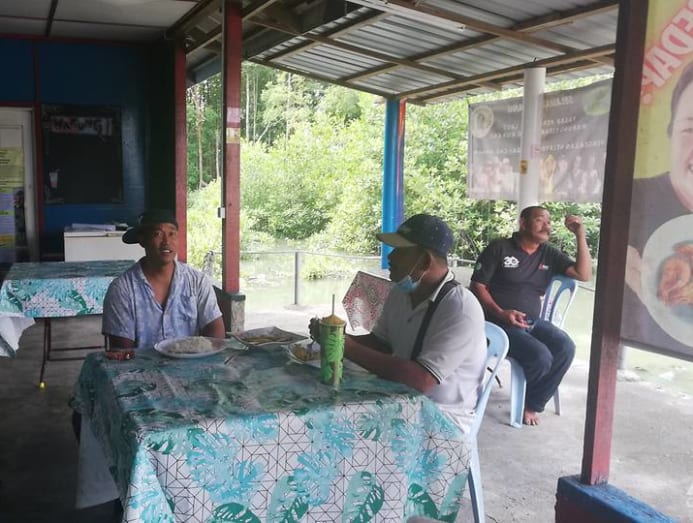
THE MOST VULNERABLE ARE MOST AFFECTED
The most vulnerable are also the most affected.
In the best of times, medical care in Orang Asli (indigenous) villages is almost non-existent. During a pandemic, these communities struggle even more.
An enhanced MCO was enforced in one such Semai village, Kampung Korner, in Perak.
READ: Commentary: The former Malaysian workers in Singapore caught in limbo in Johor
After 12 COVID-19 cases were first identified in the village, the entire area was closed with no one allowed to enter or leave. But the numbers quickly rose to 52 infected persons.
In Sarawak, a cluster in rural longhouses originated from a relative who returned from Johor for her father’s funeral. She had tested negative initially, but eventually developed symptoms and tested positive.
By then many others caught and spread the virus to other rural areas. This triggered several infections and an MCO being implemented in Kapit, Sibu and Song.
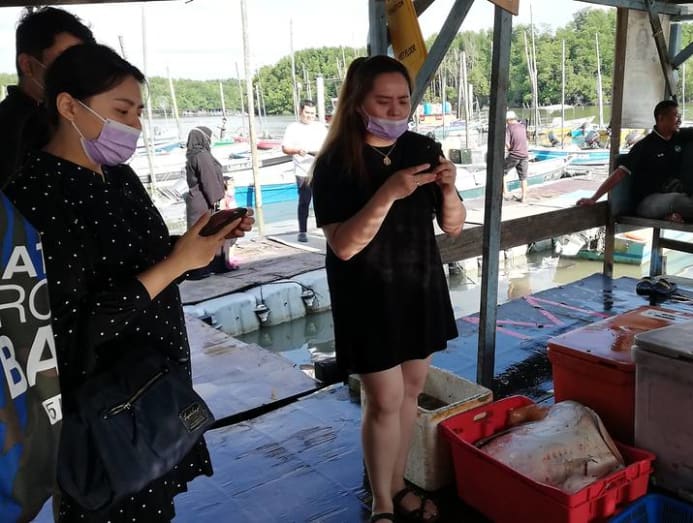
Many of the rural and urban poor folk work in factories under tightly-packed working conditions. Daily reports of new clusters at work places, with several high-profile cases of factory clusters in manufacturing and food-processing, have made the news.
Cramped and congested low-income housing do not help. An old folks’ home and a shelter for young single mothers in Johor Bahru were also declared clusters in January.
In the Baitus Soleha shelter, 42 of 58 residents were declared positive, including young pregnant or breast-feeding mothers and their babies.
Many other children’s homes and other shelters have been putting out calls for help as funds and sponsors run dry.
READ: Commentary: Malaysia a kinder and stronger society months into COVID-19 fight
THANKFULLY SMALL AND MICRO BUSINESSES CAN OPEN
The current version of the MCO allows for small and micro-businesses to open and for the 10km travel restrictions to be dropped. These are lifelines for rural communities.
Small pop-up food shops help many earn some cash although sometimes this can be as low as RM50 a day. But it is a more affordable source of food for many working long hours and do not have the energy or facilities to cook at home.
The most recent change in SOPs now allows in-restaurant dining with restrictions on group size and social distancing requirements.
After much public pressure, night markets have also been allowed to open.
But the relaxing of rules have raised questions over fresh inconsistencies in the rules. Up until the latest MCO extension, many wondered how 10km limits on travel square with the fact of crowded markets and shops.
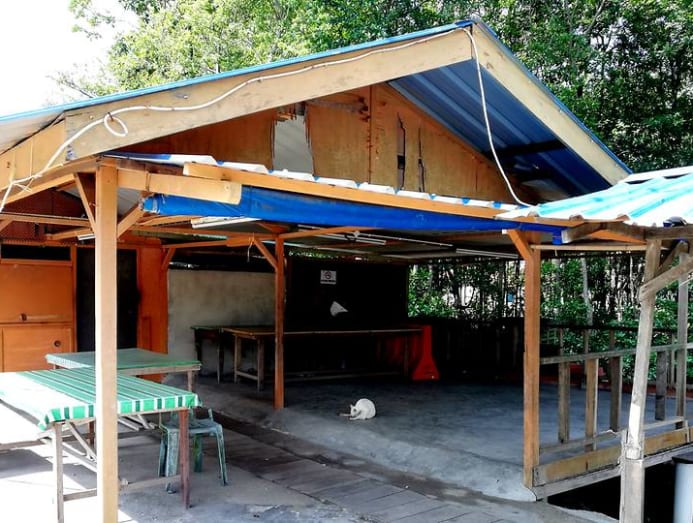
While ministers declare the plight of the poor is alleviated by millions in government aid, many in the rural outskirts have not benefited from these packages because many do not have Inland Revenue Board or Employment Provident Fund accounts.
Many have never had to pay taxes nor earned stable monthly incomes. Requests for other aid require travelling to bigger town centres even further away.
Living in these villages in Johor, the outlook is bleak.
The daily struggle of the poor is not something that decision-makers in the big cities or in the corridors of power have ever truly experienced or can understand.
And with the announcement that MCO restrictions in Johor have been extended until Mar 4, COVID-19 is inflicting far more damage than the statistics can ever reveal.
Dr Serina Rahman, Visiting Fellow at the ISEAS-Yusof Ishak Institute, writes from Johor where she’s in lockdown with the rest of Malaysia.





